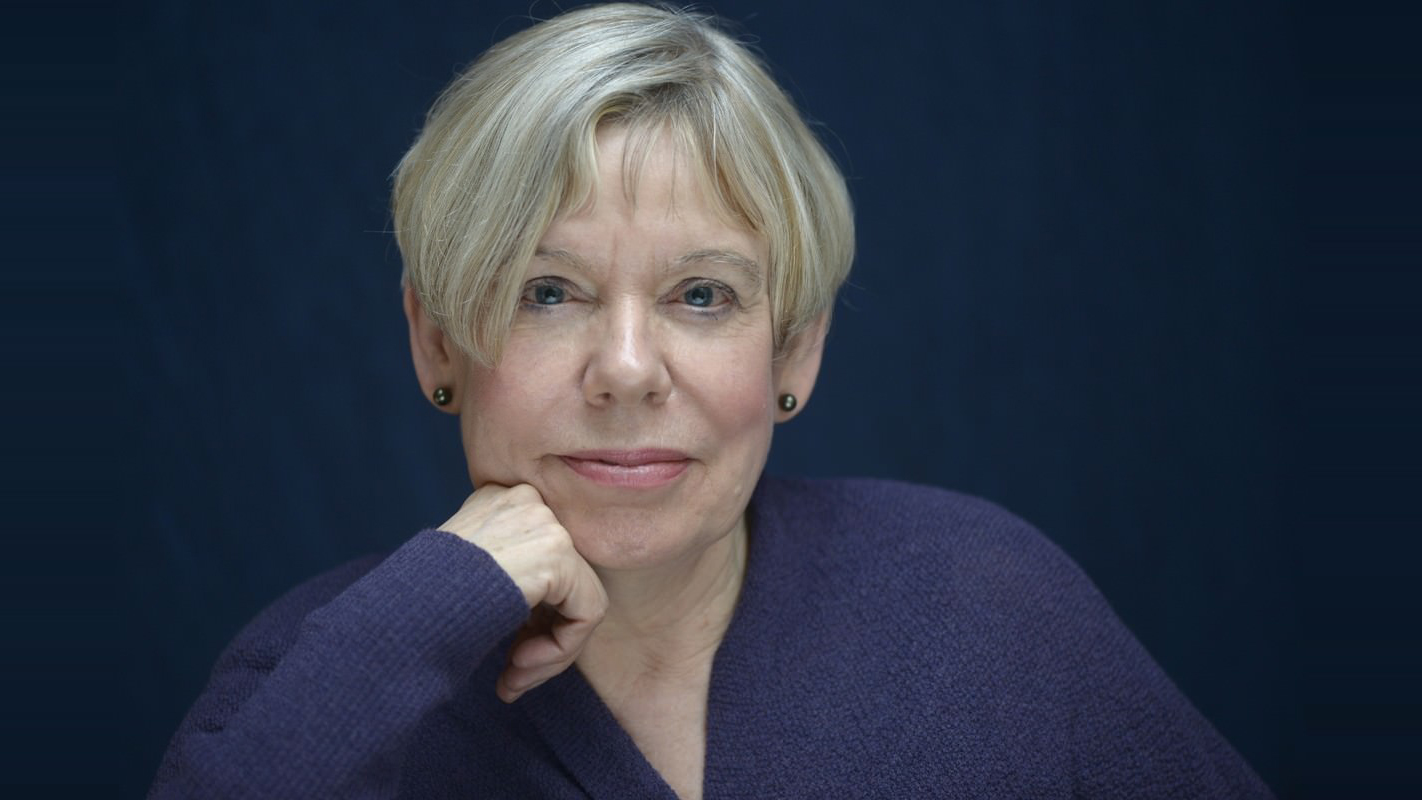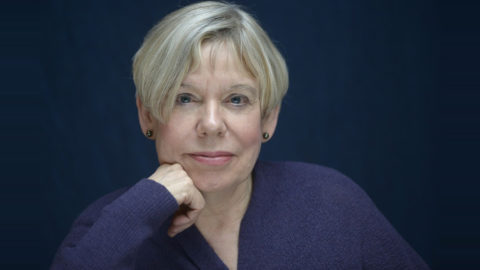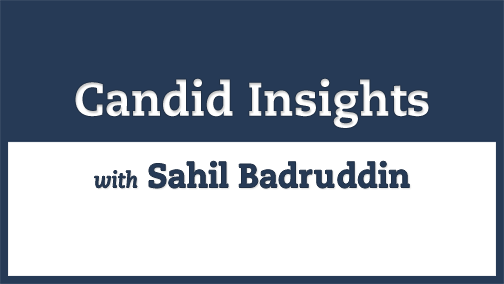Karen Armstrong on the State of the World Today
EDITORS’ NOTE: Dr. Karen Armstrong — an internationally acclaimed scholar and bestselling author of numerous books — discusses her insights on compassion, the Golden Rule, nationalism, materialism, Cosmopolitan Ethic, religious literacy, the future of religion, perceptions of religious people, religious institutions, personal search, and her vision for the future. She also won the 2008 TED Prize launching The Charter for Compassion, which has over two million signatories. Published for The.Ismaili
Short Excerpts from the Interview
Tribalism and Nationalism and its Effect
Sahil Badruddin: These trends of, as I mentioned, tribalism and nationalism, they’re clearly impacting our sense of compassion, and they’re making us less compassionate —
Dr. Karen Armstrong: Yes.
SB: How do we reverse this or diminish this, and help people become more committed so that compassion, again, impacts their daily lives?
Dr. Armstrong: I think you have to startle them a little bit, to make them in a little bit uncomfortable because too often people regard religion or morality something to make them feel good. With the Charter for Compassion, we’ve created cities of compassion where the Mayor endorses the Charter and undertakes a program for the city that the city needs – it might be homelessness for example, or medical care, something of that sort. It’s got to have some practical dimension.
Someone asked me once, “What should a compassionate city be like to live in?” I said, “A compassionate city should be an uncomfortable city.” It should be profoundly not sitting complacently around a city saying, “What a wonderful compassionate society we’ve got here,” but looking at the state of the world around.
Someone asked me once, “What should a compassionate city be like to live in?” I said, “A compassionate city should be an uncomfortable city.” It should be profoundly not sitting complacently around a city saying, “What a wonderful compassionate society we’ve got here,” but looking at the state of the world around.
I think you’ll correct me, but I believe someone once told me that the Prophet Muhammad once said, peace be upon him, that no one of you can be a believer if he can sleep when is someone is hungry.
SB: Right.
Dr. Armstrong: Now, we know, we see on our televisions screens; the depths of massive inequity within our own societies. This winter in London, it was particularly cold. Britain is one of the richest countries in the world and yet there were unprecedented numbers of people sleeping on the streets.
This should be disturbing to us. I didn’t hear any religious leader come forward to talk about this. I didn’t hear the Archbishop of Canterbury making a point about this. When they’re watching the news, it now seems regular for the newscaster to say when he’s introducing some footage, “This is a warning. You may find this disturbing, distressing.” And that gives you a chance to switch channels or turn off. God forbid, within your nice comfortable home you should see something upsetting.
We’ve got to really make ourselves aware of the pain in the world because it only makes sense because all this pain and anguish and suffering — there are children growing up in Syria who’ve never known peace, they’ve just seen horror in their life. What are those children going to be grown up to become in the future? So this is not something we should just switch off and then return to our nice comfortable suburban homes. We should be making ourselves extremely uncomfortable about the state of the world looking at the pain of the world, that’s what all the great prophets did, they were not sitting around complacently doing yoga.
We should be making ourselves extremely uncomfortable about the state of the world looking at the pain of the world, that’s what all the great prophets did, they were not sitting around complacently doing yoga.
The Prophet used to go before he received any revelation, make a retreat on Mount Hira every year, with his wife Khadija. There, they would start engaging some ascetical exercises and also give food or alms to the poor, who would come to visit them.
But it says that while he was doing this, he was troubled about the state of the world, it distressed him. He was anguished at the state of his own society in Mecca where there were huge spiritual melees. But also, the whole region was engulfed in warfare with Persia and Byzantium engaged in these devastating wars.
We should make ourselves aware and to make ourselves uncomfortable because that suffering, we must feel it as though it were our own. I think that we’ve got to shake up, we live in such a cocoon in the west. In previous years or in pre-modern states, which were based on agriculture, agrarian produce. Ninety percent of the population was reduced to serfdom in order to support a small tiny aristocracy.
Historians tell us that without this inequitable system we would probably never have evolved beyond subsistence level because it created a privileged class with the ability, the leisure, to develop the arts and sciences on which our progress depended. No civilization until the now modern industrial civilization found an alternative to this inequitable system.
Now, we talk a great deal about equality, but we’re not seeing the fact that a lot of the goods that we’re buying or rather are encouraged to buy in order to keep our commercial economy going, have been created in sweatshops from people working as indentured slaves. And we never see that. At least the aristocrats saw the peasants toiling in the fields. We don’t see, we live in this cocoon, and God forbid, we should see some distressing sight on the news. This is profoundly dangerous.
SB: I agree. You’ve often also shared that religious institutions don’t always display the full spectrum, understanding, and values inherent in a religious tradition. I also mean, like, people have a difficult time separating religious institutions from the religion itself —
Dr. Armstrong: Yes.
SB: — And this leads to people becoming non-affiliated, non-religious, sometimes not quite an atheist or agnostic but believing in spirituality, in some form of a divine — in America, that’s around 27% total, and if you’re actually under the age of 30, there’s a higher chance you’re in this non-affiliated camp.
Religious Tradition and Affiliation
What I want to ask is, what advice or direction would you give to those struggling to look at this issue and to look at their own religious tradition itself in a different light?
Dr. Armstrong: It’s always a good idea to have a look at how things were done a bit in the past, and then try and do it in the future. One of the things I’ve found is about scripture is that until the modern period, scripture was always a work in progress. You made it speak, you gave it a new interpretation in order to make it speak to the present. You weren’t harping back to the past so that you would reproduce the conditions of 2nd century Arabia or the conditions of the early Christian church because that was God, you make that speak to the present. About a century after the Prophet’s death, it did come back.
One of the things I’ve found is about scripture is that until the modern period, scripture was always a work in progress. You made it speak, you gave it a new interpretation in order to make it speak to the present. You weren’t harping back to the past …
You need to recognize Islam because it’s a change, because they were now masters of a huge empire and there was a lot of distress about this, how to square imperial injustice with the Qur’an, and out came all these institutions which we now associate with Islam which were not there in Medina like fiqh or Sufism or Shia historiography too. They were making the traditions speak to now.
I think we need to be more creative about religion. But it’s not just about you and your soul. I think this is one of the things that’s happening is that people just want to have a nice spiritual warm glow in themselves and have some private relationship with God. What I’ve found in all the scriptures are a call for action —
SB: In the world, exactly.
Dr. Armstrong: — which you must go back to the marketplace, you must make the world a better place, you must build a decent society. Jesus said when the kingdom comes, and the king comes to judge the people, he’s not going to be judging you on your sins or anything of that sort, but he said, “I was hungry, you gave me to eat. I was thirsty, you gave me to drink. I was sick, naked, and in prison, and you came to visit me.” It’s that outreach, that compassionate outreach because it’s that which makes religions viable because you’re not just engaged in some nice little soul-searching job, you are trying to heal the world because that’s what the Prophet did, that’s certainly what Jesus did.
The prophets of Israel had no time for people who said their prayers very nicely in the temple but neglected the plight of the poor and the oppressed and allowed their rulers to get away with war crimes. There should be a voice, what the clerics should be doing now, that now religion is separate from the state, is becoming prophetic in a sense, to speak about current injustices, and open people’s eyes and make them uncomfortable.
I was just reading an account that said in the United States, between 2002 to 2003, sociologists did a huge survey, and they found something. I forgot the exact title that they gave it. They called it Ethical Transcendental Monotheism or something, which was the major religion of most young people and their parents. That God, well, He just wants me to be happy, He’s my friend and Jesus is my personal savior, and so He’s your personal trainer or something, just out to make me feel good, He wants to make me feel good in a way.
Whatever God is, He does not want us to feel good, God wants us to be disturbed by the distress that we see around us. I think the secularization of society has somehow trivialized religion so that yoga, for example, which used to be about getting rid of ego, has now become a sort of aerobic exercise. Mindfulness is meant to make you feel more defensive in yourself, more at home with yourself and etc. Whereas, the Buddha designed that this practice to show you that the self does not exist at all.
Whatever God is, He does not want us to feel good, God wants us to be disturbed by the distress that we see around us. … Our society, especially in the west, is so geared to self-gratification and feeling good that we expect our religions to make us feel good too. But religions are telling us, “Get out there.” I think if you want to start getting out there and start engaging with the plights of the world, I think the texts start speaking to you in a much more urgent way.
Our society, especially in the west, is so geared to self-gratification and feeling good that we expect our religions to make us feel good too. But religions are telling us, “Get out there.” I think if you want to start getting out there and start engaging with the plights of the world, I think the texts start speaking to you in a much more urgent way.
About Karen Armstrong
Karen Armstrong (OBE; FRSL) is the author of numerous books on religion, including A History of God, which became an international bestseller; The Battle for God, A History of Fundamentalism; Islam; Buddha; and The Great Transformation, as well as a memoir, The Spiral Staircase. Her work has been translated into 43 languages.
She has addressed members of the US Congress on three occasions; lectured to policymakers at the US State Department. In 2006, she was invited by Kofi Annan to join the High-Level Group of the new UN Alliance of Civilisations; in 2008, she was awarded the Franklin D. Roosevelt Four Freedoms Medal; in 2009, she was awarded the TED Prize and with TED founded the Charter for Compassion, which is now a global movement. From 2008- 2016, she was a Trustee of the British Museum; in 2013, she was awarded the inaugural British Academy Al-Rodhan Prize for Improving Intercultural Relations; and in 2017, she was awarded the Princess of Asturias Award for Social Sciences.




